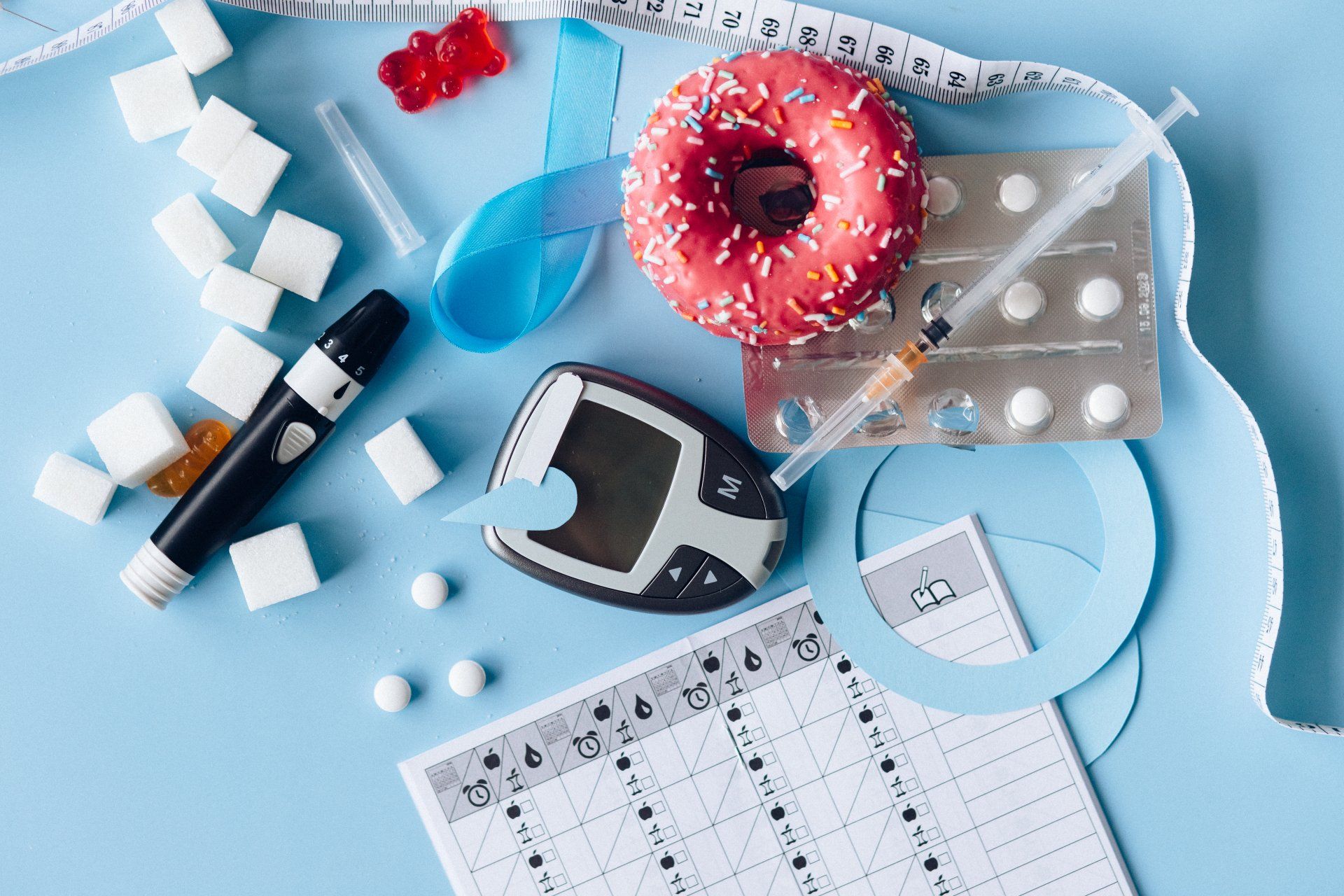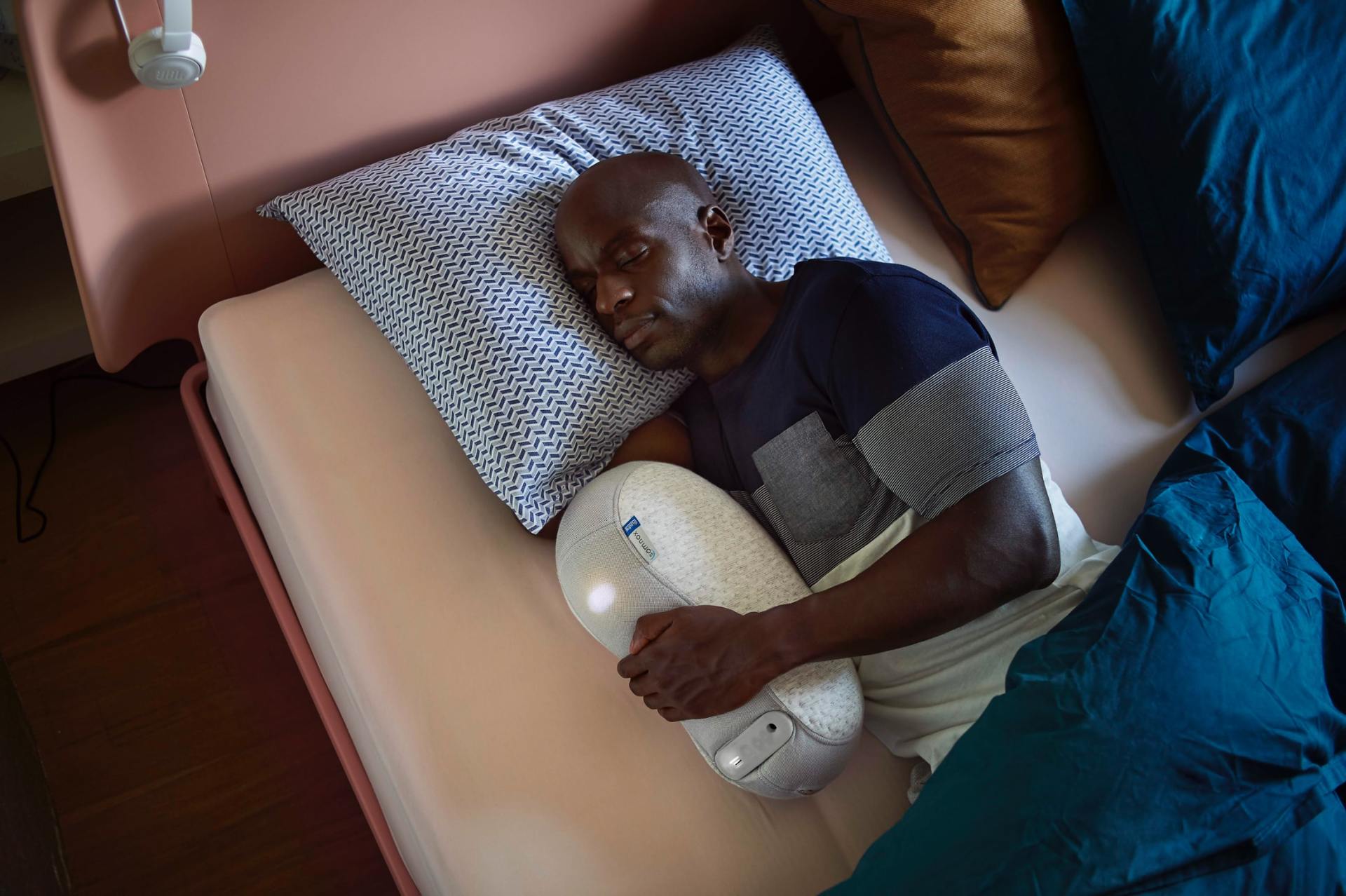Why Sleep is Important
It is well known that sleep is an important biological function essential for life. While we sleep many important functions take place that help the body in physical recovery and repair, support brain development, cardiac function and body metabolism, as well as support learning, improving memory and mood. Sleep is especially important for children playing an important role in growth and overall health and babies and children need much more sleep than adults.
Without enough sleep we are more likely to have problems with thinking, concentration, memory, reaction times and mood, all of which make it harder to perform our daily tasks and increase the risks of mistakes and accidents. Regular insufficient or poor sleep contributes to long-term health problems such as;
- Obesity
- Type 2 diabetes
- Cardiovascular disease
- Poor mental health.
How Sleep Works
Sleep is a state of reduced consciousness, but one which we can be easily wakened. When we sleep our brains remain active, although activity levels vary throughout the course of sleep along with other physiological functions, such as body temperature, breathing and heart rate.
Sleep Drive and our Body Clock
Our sleep is controlled by two interacting systems:
Homeostatic sleep drive processes which balance out time awake with periods of sleep. In other words, when we have been awake for a long period, this process ensures we feel sleepy and helps us sleep long enough to make up for the time we are awake.
Body Clock is the name often used to refer to Circadian Rhythms. Circadian rhythms are created by our central nervous system and control a lot of our biological process such as sleep, as well as body temperature and hormone activity. Our circadian rhythms are also synchronized with the 24-hour cycle of light and dark resulting in our normal pattern of night-time sleep.
If our circadian rhythms are disrupted it can interfere with our sleep. For example, Jet Lag occurs when our circadian rhythms are disrupted by long-distance flying.
Sleep cycles
Sleep is divided into different periods of light and deep sleep across the night. These occur in cycles of about 90 minutes. Each cycle includes periods of non-REM sleep, ranging from light to deep sleep, and REM (Rapid Eye Movement) sleep when our brains are more active and dreams occur.
Sleep cycles are different for older and younger people. Sleep cycles can be affected by a number of things such as disruption to your body clock (circadian rhythms), too much day-time napping, stress, exercise or too much exposure to bright light prior to usual bed time.
A good night’s sleep is incredibly important for your health.
In fact, it’s just as important as eating healthy and exercising.
Unfortunately, there’s a lot that can interfere with natural sleep patterns.
People are now sleeping less than they did in the past, and sleep quality has decreased as well.
Poor sleep is linked to higher body weight.
- Poor sleep is strongly linked to weight gain.
- People with short sleep duration tend to weigh significantly more than those who get adequate sleep.
- In fact, short sleep duration is one of the strongest risk factors for obesity.
- In one extensive review study, children and adults with short sleep duration were 89% and 55% more likely to develop obesity, respectively.
- The effect of sleep on weight gain is believed to be mediated by numerous factors, including hormones and motivation to exercise.
- If you’re trying to lose weight, getting quality sleep is absolutely crucial.
SUMMARY
Short sleep duration is associated with an increased risk of weight gain and obesity in both children and adults.
Good sleepers tend to eat fewer calories
- It has been shown that sleep-deprived individuals have a bigger appetite and tend to eat more calories.
- Sleep deprivation disrupts the daily fluctuations in appetite hormones and is believed to cause poor appetite regulation.
- This includes higher levels of ghrelin, the hormone that stimulates appetite, and reduced levels of leptin, the hormone that suppresses appetite.
SUMMARY
Poor sleep affects hormones that regulate appetite. Those who get adequate sleep tend to eat fewer calories than those who don’t.
Good sleep can improve concentration and productivity
- Sleep is important for various aspects of brain function.
- This includes cognition, concentration, productivity, and performance.
- All of these are negatively affected by sleep deprivation.
- People on a traditional schedule with extended work hours of more than 24 hours made 36% more serious medical errors than interns on a schedule that allowed more sleep.
- It is known that short sleep can negatively impact some aspects of brain function to a similar degree as alcohol intoxication.
- On the other hand, good sleep has been shown to improve problem-solving skills and enhance memory performance of both children and adults.
SUMMARY
Good sleep can maximize problem-solving skills and enhance memory. Poor sleep has been shown to impair brain function.
Good sleep can maximize athletic performance
- Sleep has been shown to enhance athletic performance.
- An example on basketball players, longer sleep was shown to significantly improve speed, accuracy, reaction times, and mental.
- Less sleep duration has also been associated with poor exercise performance and functional limitation in older women.
- It has been shown in over 2,800 women found that poor sleep was linked to slower walking, lower grip strength, and greater difficulty performing independent activities.
SUMMARY
Longer sleep has been shown to improve many aspects of athletic and physical performance.
Poor sleepers have a greater risk of heart disease and stroke
- Sleep quality and duration can have a major effect on many health risk factors.
- These are the factors believed to drive chronic diseases, including heart disease.
- People who don’t get enough sleep are at far greater risk of heart disease or stroke than those who sleep 7–8 hours per night.
SUMMARY
Sleeping less than 7–8 hours per night is linked to an increased risk of heart disease and stroke.
Sleep affects glucose metabolism and type 2 diabetes risk
- Experimental sleep restriction affects blood sugar and reduces insulin sensitivity.
- It has been known that healthy young men, restricting sleep to 4 hours per night for 6 nights in a row caused symptoms of prediabetes.
- These symptoms resolved after one week of increased sleep duration.
- Poor sleep habits are also strongly linked to adverse effects on blood sugar in the general population.
- Those sleeping less than 6 hours per night have repeatedly been shown to be at an increased risk of type 2 diabetes.
SUMMARY
Sleep deprivation can cause prediabetes in healthy adults in as little as 6 days. Many studies show a strong link between short sleep duration and type 2 diabetes.
Poor sleep is linked to depression
- Mental health issues, such as depression, are strongly linked to poor sleep quality and sleeping disorders.
- It’s been estimated that 90% of people with depression complain about sleep quality.
- Poor sleep is even associated with an increased risk of death by suicide.
- Those with sleeping disorders like insomnia or obstructive sleep apnea also report significantly higher rates of depression than those without.
SUMMARY
Poor sleeping patterns are strongly linked to depression, particularly for those with a sleeping disorder.
Sleep improves your immune function
- Even a small loss of sleep has been shown to impair immune function.
- Those who slept less than 7 hours are almost 3 times more likely to develop a cold than those who slept 8 hours or more.
- If you often get colds, ensuring that you get at least 8 hours of sleep per night could be very helpful. Eating more garlic can help as well.
SUMMARY
Getting at least 8 hours of sleep can improve your immune function and help fight the common cold.
Poor sleep is linked to increased inflammation
- Sleep can have a major effect on inflammation in your body.
- In fact, sleep loss is known to activate undesirable markers of inflammation and cell damage.
- Poor sleep has been known to be linked to long-term inflammation of the digestive tract, in disorders known as inflammatory bowel disease.
- Sleep-deprived people with Crohn’s disease were twice as likely to relapse as people who slept well.
SUMMARY
Sleep affects your body’s inflammatory responses. Poor sleep is linked to inflammatory bowel diseases and can increase your risk of disease recurrence.
Effects of Sleep Deprivation
Conventional wisdom says that the average adult should aim to get about eight hours of sleep each night. Children need significantly more sleep time while older adults may manage with less. Before the invention of effective artificial lighting, the cycle of night and day regulated sleeping patterns. People worked during the daylight hours and when night fell they went to bed. The poor light cast by candles and oil lamps did not encourage them to stay up. Today electric light effectively obscures the difference between night and day. Work, social life, computers, and many other factors tempt us to cut down on much-needed sleep. Cutting out on too much sleep results in sleep deprivation.
Your body really needs that sleep
The fact that you become tired and need to sleep at times proves that this is vital to the body's functioning. Just as you need to eat and drink a certain amount and exercise to stay healthy the same applies to sleep. The optimum sleep time varies between individuals, but if an average person gets less than six hours of solid sleep each night, they are sleep deprived. Your body needs this rest to recoup energy expended during the day. A serious lack of sleep weakens the immune system to increase the likelihood of infection.
Lack of sleep leads to accidents
You often read in the news about fatal traffic accidents that occur because a driver fell asleep at the wheel. It is irresponsible to drive when you are too tired to react with the speed that fast moving traffic demands. It is just as foolish and immoral as driving under the influence of drink. The road is far from the only place where sleep deprivation often causes accidents. Someone who works on a machine in a factory, in the construction industry and many other working environments needs to be fully alert. If they become dozy at they can easily make mistakes and injure themselves and colleagues.
Damage to human relationships
Lack of sufficient sleep makes a person grumpy and irritable. It is easy to say or do things you later regret if overtiredness prevents you from thinking before speaking or acting. Consider how many business and social relationships disintegrate because one party says or does something without sufficient forethought. A good night's sleep ensures that you are much better equipped to respond well to the challenges that invariably come up in human dealings.
Increased danger of developing diabetes
While genetic and diet factors are key determinants of whether or not an individual is prone to develop diabetes, lack of sleep also plays a role. Getting sufficient sleep helps the body process glucose. If you usually sleep less than five hours per night, your body is unable to effectively perform this function and risks of developing type 2 diabetes increases.
More likely to put on weight
So many people look for ways to lose weight. They take on strict diets, enroll in gyms, and extreme cases even undergo operations. There could be an easier way to keep weight down that few seem to know about. It is suggested that those who sleep less than seven hours per night are more likely to put on weight than people who sleep longer. This relative lack of sleep is apparently sufficient to increase their appetite and make them less likely to feel satisfied with their normal food intake.
Could increase the risk of heart disease
Heart disease is one of the main killers in western countries. The connections to diet and lifestyle are well- publicized, but lack of sleep can also push up heart disease risks. A healthy heart requires you to get sufficient regular sleep. Cutting down on necessary sleep hours increases blood pressure, and makes the body more exposed to inflammation. The consequent increase in strains on the heart could do lasting damage.
Deterioration in skin quality
Anyone who cares about their complexion (and who does not want to have healthy skin?) should know that lack of sleep affects skin quality. The body utilizes sleeping time to produce hormones that repair damaged tissues. If you cut down too much on the amount of time you sleep, you deprive the body of these self-repair opportunities. This prevents the thickening of the skin and strengthening bone structure.
Makes it Harder to Have Children
Fertility problems are nothing new, but the introduction of new medical techniques offers new hopes to couples in this sad situation. However, few appreciate that lack of sleep might also be a factor preventing conception. Sleep deprivation reduces both male and female fertility because it lowers the amount of reproductive hormones the body produces. If there are no preexisting genetic or health problems that make it hard to conceive, it is worth trying to see if an extra hour's sleep could make a vital difference.
Impairing memory
As people get older, their memory might naturally weaken. Sometimes they find it easier to remember events that happened years ago when compared to where they put the car keys! Yet research shows that that lack of sleep also damages memory. The body uses sleep time to transfer information to the brain. Therefore, if you cut down on sleep, you deprive the body of these opportunities to boost memory functioning.
The better you sleep, the longer you live
It has been found that those who slept the least doubled their risks of death. This frightening thought should lead everyone who regularly deprives themselves of necessary sleep to seriously consider the risks they take.
Healthy Sleep Habits
Your behaviors during the day, and especially before bedtime, can have a major impact on your sleep. They can promote healthy sleep or contribute to sleeplessness.
Your daily routines – what you eat and drink, the medications you take, how you schedule your days and how you choose to spend your evenings – can significantly impact your quality of sleep. Even a few slight adjustments can, in some cases, mean the difference between sound sleep and a restless night. Completing a two-week sleep diary can help you understand how your routines affect your sleep.
Quick Sleep Tips
Follow these tips to establish healthy sleep habits:
- Keep a consistent sleep schedule. Get up at the same time every day, even on weekends or during vacations.
- Set a bedtime that is early enough for you to get at least 7 hours of sleep.
- Don’t go to bed unless you are sleepy.
- If you don’t fall asleep after 20 minutes, get out of bed.
- Establish a relaxing bedtime routine.
- Use your bed only for sleep and sex.
- Make your bedroom quiet and relaxing. Keep the room at a comfortable, cool temperature.
- Limit exposure to bright light in the evenings.
- Turn off electronic devices at least 30 minutes before bedtime.
- Don’t eat a large meal before bedtime. If you are hungry at night, eat a light, healthy snack.
- Exercise regularly and maintain a healthy diet.
- Avoid consuming caffeine in the late afternoon or evening.
- Avoid consuming alcohol before bedtime.
- Reduce your fluid intake before bedtime.
Good Sleep = Good Health
Sleeping well makes us feel better, more alert, energetic, and better able to concentrate and perform our daily tasks. Getting enough sleep each day is one of the most important things you can do for your health and wellbeing and to reduce your risk for ill-health.
Thank you for your support in reading this article and hopefully, you have found it beneficial.
"Providing Better Health Through Knowledge"




















